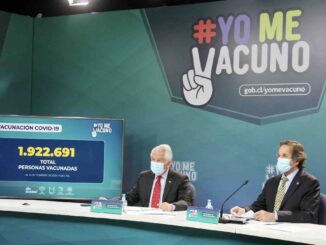
MONTEVIDEO – ICC Labs Inc., a subsidiary of Canada’s Aurora Cannabis Inc., opened Wednesday in Montevideo and became the subcontinent’s first producer of cannabis-derived pharmaceuticals with a capacity “to supply almost the entire South American continent,” according to the company’s CEO Alejandro Antalich.
The ceremony was headed by Uruguay’s President Tabaré Vázquez, who is a medical doctor and was flanked by members of his cabinet.The plant cost around 12 million US dollars and might also be able to supply Central America and Mexico, Antalich explained.
“For a long time, Uruguay was known as the Switzerland of the Americas. I believe that today, with the help of Aurora, and considering that we are creating a new industry in Uruguay, we have the possibility of being known as the Switzerland of the Americas again,” Antalich said.
Vázquez’ aide Juan Andrés Roballo pointed out that “Uruguay as an exporter of agricultural raw material now adds [to its economy] the last stage of industrialization, which generates demand for highly qualified human resources, inputs and services of high aggregate level; and it puts us in another standard in an industry that we want to develop, because it involves scientific research that has as a destination the quality of life of people combined with the development of Uruguay as a hub in the continent to produce scientifically proven quality products.”
Antalich agreed: “The most important thing for the company was always to be able to vertically integrate the entire production matrix in Uruguay, which allows us to have very low production costs and makes us a very competitive player worldwide,” he said.
Uruguay’s Acting Health Minister Jorge Quian echoed and President Vázquez and Secretary Roballo about the importance of the creation of this type of centres: “To know that here we will work seriously in the production of medicinal cannabis is fundamental,” he underlined.
He also explained that with this technology and with the contribution of the Pasteur Institute, the National Agency for Research and Innovation (ANII) and the School of Medicine, Uruguay will be able to develop research in greater depth and demonstrate the quality and usefulness of the products. “It is a huge technological, labour and research opportunity for Uruguayans,” he summarized.
Antalich anticipated the products will be “affordable” for most people but declined to disclose a price range. He also mentioned an assistance programme so that low income patients who might need these medicines can get them free of charge.–MercoPress



